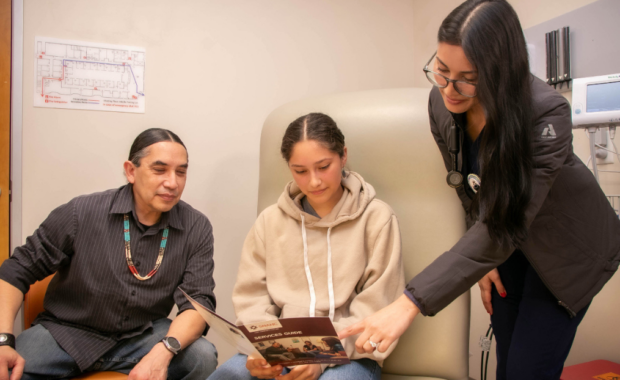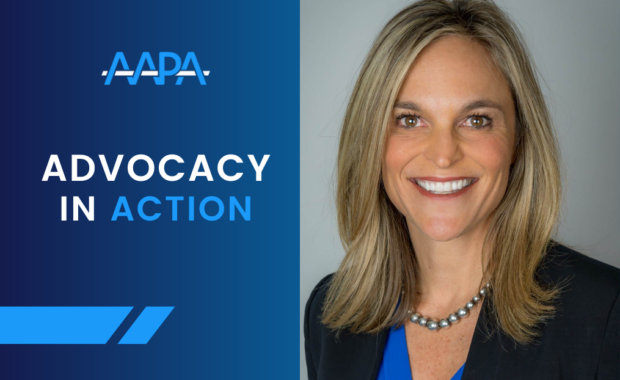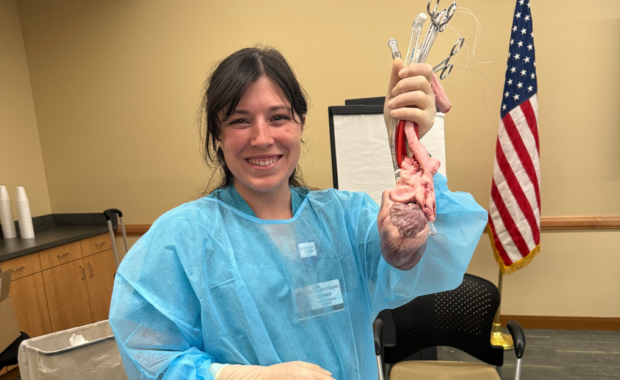Wanderlust Lessons: Advice from Travel Medicine PAs
How You Can Practice in the Wilderness and Abroad
August 13, 2018
By Abby Boshart
Jeff Evans, PA, Jacquelyn Borst, PA-C, and Lyndsey Milcarek, PA-C, MPH, are accomplished PAs who have worked in some of the most extreme settings.
As the Executive Director of International Impact Through Medicine Foundation (Impact), Borst has worked with organizations in Haiti and Honduras to provide sustainable medical care solutions to underserved populations in these countries.
Milcarek serves as the President of PAs for Global Health (PAGH), a grassroots non-profit organization working to meet the needs of PAs interested in working medical around the globe and has worked abroad in Brazil, India and South Africa.
Avid mountaineer, Evans, has worked in adventure medicine for over 25 years, practicing medicine on Mount McKinley, Mount Everest, and around the world in places likes Nepal and Iraq.
The three PAs recently hosted a Huddle Ask Me Session about travel medicine where they shared how you can get involved in this amazing field of care.
Network to Find Unique Opportunities
When looking for positions in travel medicine, you may not always be able to see what is available through an online job search. Evans says that when looking to get involved with travel medicine, your best bet is often good, old-fashioned networking.
Evans recalls his efforts to get his name out there as a recent PA school graduate in hopes of finding an opportunity in wilderness medicine.
“I made sure that any medical professional who was even remotely in my network was made keenly aware that there was a green PA who wanted to get out in the field and was willing to do so on a volunteer basis,” he said. These connections he made led to other new relationships, and in no time, he was being approached about opportunities to join trips.
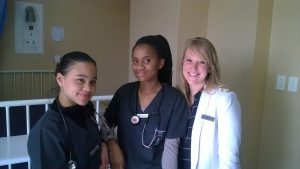
Milcarek echoes Evans’ sentiment about the value of connections.
“Generally, the connections you make in this area are more lucrative. Networking is essential and will help you discover new opportunities that may not be highly publicized,” she said.
If you’re interested in working in adventure medicine, Milcarek suggests checking out one of the Wilderness Medicine conferences. These events are a great place to work on building connections or to figure out which direction you are interested in heading. PAGH is another great organization with an annual conference that offers the perfect opportunity for growing your network.
Work with an Established Organization
Borst, Evans and Milcarek all stressed the importance of working with an organization that already has experience in the location you hope to serve, instead of going out on your own. Having worked in these communities and locations, these organizations know how to make travel arrangements; they understand what supplies are needed, and how to work with local officials to ensure the project goes smoothly.
In addition to having the logistics of the project worked out, these organizations may know more about communities’ needs and how best to approach new initiatives.
“Sometimes as an outsider, we tend to have our own ideas of how a trip or a long-term project should go. But that’s just it, we’re an outsider,” Said Borst. “The most valuable information I gain is when I truly listen to what my national partners tell me.“
These organizations are often focused on long-term solutions for these communities or building sustainable care. They have the experience to guide you on how you can use your skills most effectively as a PA to help others.
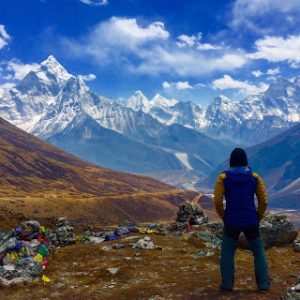
Talk to your Employer
When planning to volunteer on a short or long-term trip, it’s a good idea to let your employer know in as far advance as possible. Even if you are just beginning to explore a volunteer opportunity and don’t have a trip planned anytime soon, it is a good idea to let your employer know that a trip is something that you are considering.
Be aware that not all employers will be understanding, especially if you are making frequent trips. The best thing you can do is open a dialogue as soon as possible and provide as much info as you can and offer to work extra shifts or longer hours if possible.
Be Sensitive to Cultural Norms
One of the most amazing things about volunteering abroad is experiencing new places, new people and new cultures. Although you may not always agree with the established traditions in some of these locations, it is important to be respectful of the culture.
As a veteran medical volunteer in Haiti, Borst recalls a few times where she needed to be respectful of cultural norms that she did not necessarily agree with.
“I think that is one of the most challenging, yet most rewarding, aspects of practicing medicine in other cultures,” she said. “While I don’t always agree with the cultural beliefs that I encounter, I have learned that they are not mine to judge (or change).”
When Borst encounters cultural differences, she uses them as a chance for self-reflection and education. When she returns home after a trip, she’ll often research more about the culture and what influenced the beliefs and even reflects on her own beliefs.
Working in travel medicine can be an exciting opportunity for all PAs. With these simple tips, you can be on your way to caring for others while seeing the world.
Additional Resources:
Abby Boshart is the communications coordinator at AAPA. Contact her at [email protected].
Thank you for reading AAPA’s News Central
You have 2 articles left this month. Create a free account to read more stories, or become a member for more access to exclusive benefits! Already have an account? Log in.
